Blog-4
now browsing by category
Linguistics Links
I am interested in linguistics because I would like to teach english as a second language. Most people who want to teach english, want to teach abroad. There are plenty of places all over the world to teach.
For someone to teach english, you’ll have to know at least one other language. There are lots of ways you can learn another language: online, in a classroom, and even by just going abroad! And there are plenty of people out there willing to give advice on how to learn a language. Here is a map of languages spoken throughout the world.
Also a very interesting thing to learn about is the different dialects spoken throughout the world. This website is a very detailed database of different dialects, where they are found, and the differences between similar dialects. In other classes I have more specifically learned about dialects of Spanish.
And to reward yourself for all your hard work and learning, here are some fun linguistics links:
Border Livin’
A big part of living a walking distance from the border to Mexico, means that two different cultures, customs, foods, people, and of course, languages collide and begin to merge into one.
SPANGLISH
Although i am not completely in favor of the use of spanglish, it is something that gradually happens as two different countries collide. It is a mix of english and spanish by speakers who have at least a basic understanding of both. I am sure this is also the case in border towns across the world. Many people agree that it is acceptable to use it and even defend it by explaining there is also a right way of speaking it with rules and syntax. Others simply simply classify it as jargon that “uneducated” people use. It cannot be classified, however, as a pidgin because its history can be traced (Spanish and English) and is not an entirely new language. Not surprising, even Hollywod has acknowledged the fact that Spanglish is big, bg enough to make a movie starring Adam Sandler.
http://en.wikipedia.org/wiki/Spanglish
https://www.youtube.com/watch?v=HXkSBXrdDxs
SAN DIEGO/TIJUANA
For many, home isnt one house, one city, or even one country. It includes the best of both worlds! (Yes thats a Hannah Montana song reference…) These border towns are the most visited in the world, bringing and taking different slang, and shared words. In a car ride home, we can hear the news regarding traffic from Mexico into the US as so many people cross every day. Even local newspapers have sections for it enabling easier access.
http://pehemedia.com/wp-content/uploads/2013/04/tij-sd.jpg
http://en.wikipedia.org/wiki/Mexico%E2%80%93United_States_border
http://www.utsandiego.com/news/local-topics/border-baja/
LINGUISTICALLY DELICIOUS FOODS
As many people that have moved to beautiful San Diego from across the country, they have tasted the many finger licking good foods Mexico has to offer right here in the United States. Although many are authentic (or at least claim to be) Mexican foods, there are numerous Mexican dishes with a touch of American familiarity. (No, Taco Bell is not real Mexican food, but it is an Americanized version of it.) We see a mixture of spanish and english in the very foods we all enjoy such as carne asada fries, jalapeno poppers, fish tacos, chicken quesadillas, etc. Dont get me started on the Tostilocos…
http://www.singlepage.com/on-the-border-79/menu?ref=yahoo
http://dontheapron.wordpress.com/2012/02/22/street-food-at-the-tijuanasan-diego-border/
http://www.sandiegomagazine.com/San-Diego-Magazine/August-2014/Best-of-Tijuana/
http://ryanandelizabethshideler.blogspot.com/2012/01/food-friday-tostilocos.html
MAS LINKS INTERESANTES Y DELICIOSOS (More interesting and delicious links)
https://sp.yimg.com/ib/th?id=HN.607993290176990331&pid=15.1&P=0
http://www.traditional-mexican-culture.com/traditions-of-mexican-american-culture.html
Blog 4: Link Blogging- Collier
For a long time, I have been interested in Korean culture and language. I wanted to learn Korean when I was in high school, but it was not offered at my school. I was planning to start learning Korean in college, but I became impatient, and I started self-teaching myself. I wanted not only to become fluent in the language, but to also learn about the culture of people in Korea.
Approximately, 50.2 people live in Korea. Worldwide, Korean is spoken by about 80 million people.
As I was starting to learn Korean, I needed to learn the Korean alphabet, because the characters used in the Korean language are very different than those used in English.
http://www.linguanaut.com/korean_alphabet.htm
There were many things that helped me learn grammar, expressions, and vocabulary, such as websites like these:
http://www.talktomeinkorean.com/
https://www.youtube.com/user/fluentkorean
https://www.youtube.com/user/sweetandtasty/videos
It also helped to watch Korean dramas and movies from websites such as these:
By watching famous Korean dramas, I was able to learn a bit about the Korean culture and pick up some words and phrases including slang while having fun. The same could be said for listening to Kpop, or Korean Pop. By listening to many common phrases in pop songs, I was able to pick up a few things. I also sang along while looking at the Korean lyrics to help me read Korean faster.
https://www.youtube.com/watch?v=6SwiSpudKWI
https://www.youtube.com/watch?v=pjnEeYAn4SQ
https://www.youtube.com/watch?v=prurE5jKrBg
In addition, I went to a convention last year called “Kcon” which included not only a Kpop concert, but a Korean culture festival as well.
http://kconusa.com/program#program-list
Many booths were set up that taught attendees about Korean food and culture.
Additionally, I am interested in learning how to make Korean food, and this youtube channel helped me out a lot:
https://www.youtube.com/user/aeriskitchen
I hope that someday, I will be able to be fully immersed in the Korean culture by studying abroad at Yonsei University in Seoul. After all, the best way to learn a language and learn about a different culture is to be surrounded by it.
Interesting Links
Here are just a few links I’d thought were relevant to language and linguistics.
Foreign Languages
-This are two that i used to help me study Japanese
http://www.easyjapanese.org/index.html
http://www.freejapaneselessons.com/
– I used this one to help myself learn a few words in Italian
http://www.oneworlditaliano.com/english/italian/italian-course-free-online.htm
Pidgins and Creole
-Because the topic of Pidgin and Creole languages where so interesting to me, here is a few links relating to it.
http://www.eyeofhawaii.com/Pidgin/pidgin.htm
http://aboutworldlanguages.com/creole-languages
Accents and Dialects
-Something i also found interesting about languages is how slowly over time, people start talking differently . even though it is the same accent, they develop differences. Accents and dialects show were you come from.
http://www.dialectsarchive.com/united-states-of-america
http://aschmann.net/AmEng/
Other Useful Links
-Here are just a few links that are related to linguistics that i found relevant.
http://en.wikipedia.org/wiki/Neurolinguistics
http://en.wikipedia.org/wiki/Origin_of_language
-This one covers just about everything i have learned in the class so far. its a good review for things forgotten about.
http://ielanguages.com/linguist.html
So, the new Pokémon game came out last week… (Link Blog)
…and, yes, Pokémon is still very much relevant today.

As with every release of each new Pokémon game, hundreds of these little critters are being introduced to the world. What began as a franchise consisting of 151 Pokémon species, is now home to a total of 719 different creatures (excluding 2 new Pokémon which has yet to be officially revealed)!
What fascinates me most about Pokémon, however, is how diverse and complex this fictional world has become, and a part of this is how Language (and basic concepts of Linguistics) are integrated in the franchise.
Believe it or not, the world of Pokémon, although largely fictional, is based on real places on earth. Furthermore, they are not limited to only specific places in Japan but extends to other regions. For example, the Kalos Region, one of 6 major regions in the Pokémon world, is based on France. Its capital, Lumiose City, is based on Paris, and the Prism Tower found in the city is, of course, inspired by the Eiffel Tower.
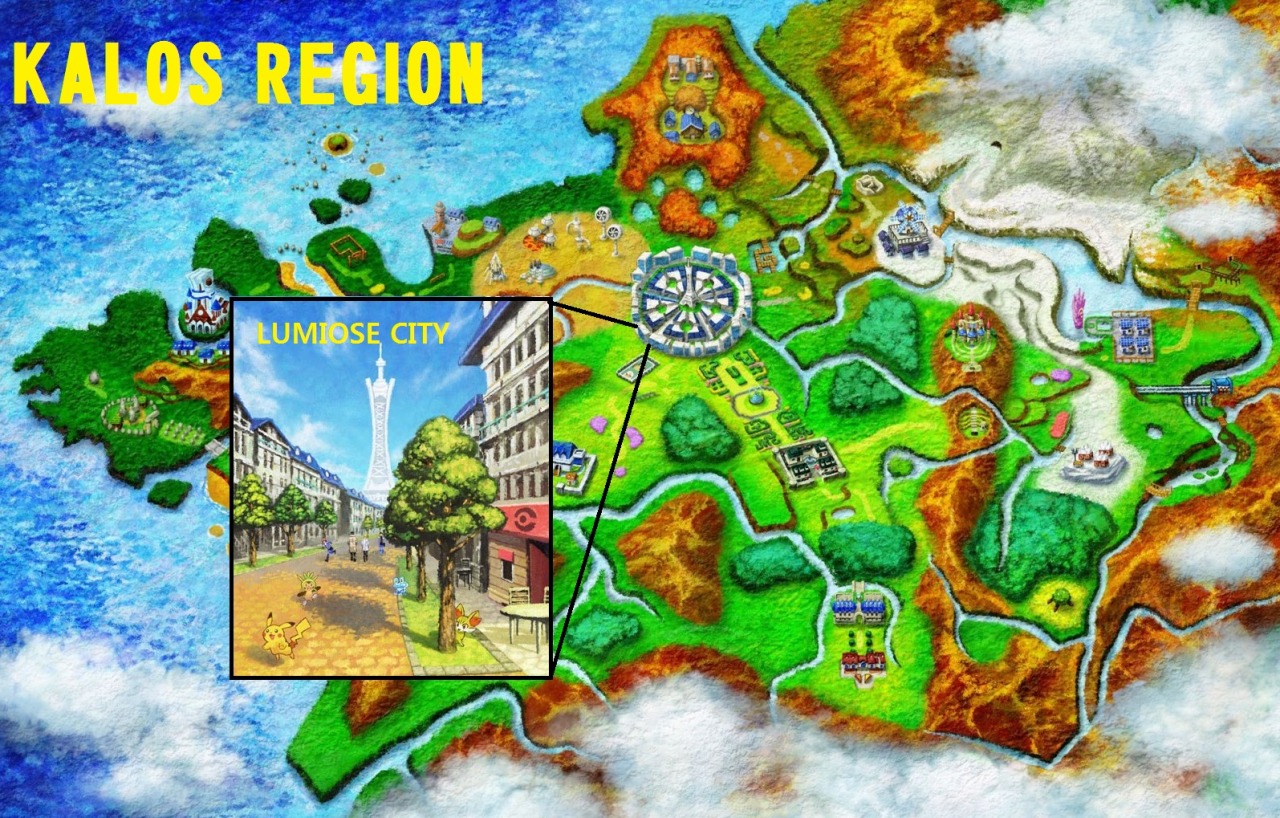
How does this relate to Linguistics in the Pokémon world? Well, it has to do with diversity. Because the Pokémon world consists of such diverse regions with its own unique inhabitants, Language Variation and Language Contact (Loanwords and Pidgin/Creole Languages) exist.
While it does sound childish, the names of each Pokémon are quite interesting. Looking at the etymology of each name often show a mix between different languages (A list of Pokemon name origins).
A more complex name can be seen in the newest Pokémon, Diancie (Pokémon #719), which includes the use of loanwords.
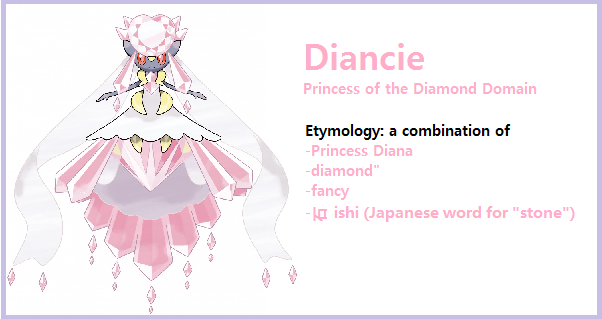
As mentioned before, “Pidgin” Languages also exist in the Pokémon world. Although not as extensive as real Pidgin Languages, the Orange Islands is a region that has its own unique versions of the language, varying with each different island.
Finally, there is an entirely separate language spoken by the Pokémon themselves. Interestingly enough, there are quite a lot of similarities between Pokemon Language and Animal Communication in Linguistics. Morever, the humans in the Pokémon world are unable to learn and understand Pokémon language just as humans in the real world can not learn animal language.
In fact, there are many cases in the Pokémon world where children are raised by Pokémon (ex. Kangaskhan Kid). They are pretty much similar to feral children (ex. Genie) in that it is extremely difficult for them to acquire human language. Chomsky’s critical period hypothesis? Perhaps. Perhaps not.
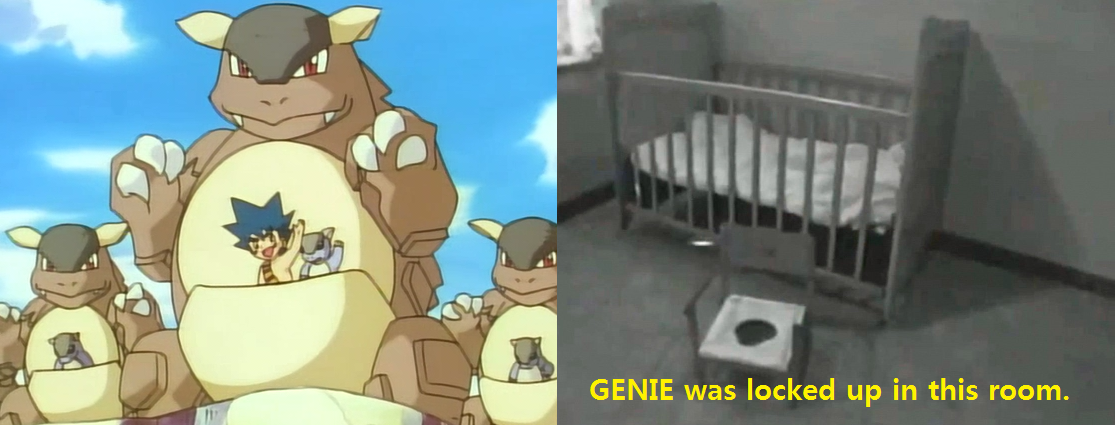
There is, however, a very odd Pokémon named Meowth that can speak and understand both Pokémon and human language. The way this creature acquired human language is very similar to how babies acquire language (Child Language Acquisition) and the stages involved in first language acquisition (Babbling Stage -> One Word Stage -> Multi-Words).


Well, that’s it for my geeky take on Pokémon and Linguistics.
Blog 4-Link Blogging
Linkguistics!
Accents and Dialects:
Is there such a thing as a “gay accent?” I wouldn’t even touch this question were there not a decent amount of scholarly research about it. The notion of “talking gay,” after all, is a staple of homophobic parody. So before going further, let me state that I believe gay men speak with as wide an array of voices as heterosexual men. I don’t give credence to the idea of a universal “gay voice.” Read more
Here’s another interesting perspective on GayDialect:
http://www.macleans.ca/society/of-lisps-and-linguistics-the-power-of-the-gay-voice/
More on accents and dialects:
http://media.her.ie/wp-content/uploads/2014/04/tumblr_m9ujoh5EF11qcazydo3_500.gif
http://media.tumblr.com/tumblr_mf6s5s8Xbw1rol1w1.gif
Abbrevs and Misplelings:
When two friends created the site I Can Has Cheezburger?, in 2007, to share cat photos with funny, misspelled captions, it was a way of cheering themselves up. They probably weren’t thinking about long-term sociolinguistic implications. But seven years later, the “cheezpeep” community is still active online, chattering away in lolspeak, its own distinctive variety of English. Read more
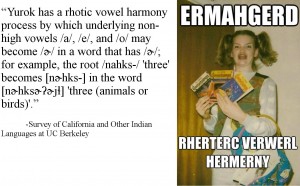
Imitation Theory:
Check out this article on children recognizing the language of the country they were born (but not raised) in:
http://www.columbiachronicle.com/health_and_tech/article_1765d862-797f-11e4-968f-27ec0ff6f1cd.html
Creoles:
From our very own Professor Bigham on universal linguistics:
The Fulani have not only lost many herds to rustlers, they may be losing their language as well. But the language is rising in Europe and the USA, where it is studied in a total of 14 universities. Read more
Animals and Language:
Animals communicate with each other, and sometimes with us. But that’s where the similarity between animals and us ends, as Jason Goldman explains: http://www.bbc.com/future/story/20121016-is-language-unique-to-humans
Con Slobodchikoff at Northern Arizona University has done some of the most amazing studies in animal communication and cognition. Using sonograms to analyze the distress calls of Gunnison’s prairie dog, one of five species of prairie dogs found in the U.S. and Mexico, he has found that prairie dog colonies have a communication system that includes nouns, verbs, and adjectives. They can tell one another what kind of predator is approaching — man, hawk, coyote, dog (noun) — and they can tell each other how fast it’s moving (verb). They can say whether a human is carrying a gun or not. Read more
Link Blogging by Tian’ao Wang
Tian’ao Wang’s linguistic blog
-
Language Change
The appearance of a new word marks only the beginning of its existence. Once generally adopted as part of the language, the meanings and applications it has for speakers can shift dramatically, to the point of causing misunderstandings. For example, “villain” once meant a peasant or farmhand, but has come to imply a criminal individual in modern English.Read more

-
Animal Communication
Language is a cognition that truly makes us human. Whereas other species do communicate with an innate ability to produce a limited number of meaningful vocalizations (e.g. bonobos), or even with partially learned systems (e.g. bird songs), there is no other species known to date that can express infinite ideas (sentences) with a limited set of symbols (speech sounds and words).Read more

-
-
Semantics
Syntax highlighting and indent style are often used to aid programmers in recognizing elements of source code. Color coded highlighting is used in this piece of code written in Python.Read more。

-
Linguistics
From Wikipedia, the free encyclopedia Jump to: navigation, search This article is about the field of study. For the journal, see Linguistics (journal). “Linguist” redirects here. For other uses, see Linguist (disambiguation) Read more

-
Indian Languages
Indigenous languages of the Americas are spoken by indigenous peoples from Alaska and Greenland to the southern tip of South America, encompassing the land masses that constitute the Americas. These indigenous languages consist of dozens of distinct language families, as well as many language isolates and unclassified languages.Read more
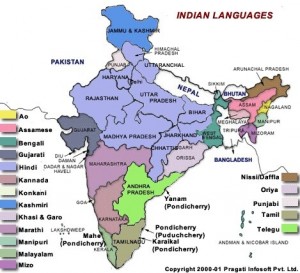
-
Language and Culture
The power of language to reflect culture and influence thinking was first proposed by an American linguist and anthropologist, Edward Sapir (1884–1939), and his student, Benjamin Whorf (1897–1941).Read more

-
-
Phonetics VS Phonology
Phonetics deals with the production of speech sounds by humans, often without prior knowledge of the language being spoken. Phonology is about patterns of sounds, especially different patterns of sounds in different languages, or within each language, different patterns of sounds in different positions in words etc.Read more
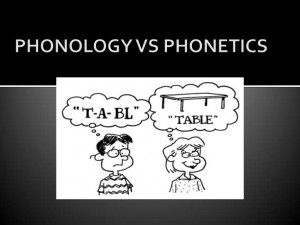
What is Morphology?
Webster’s New World Dictionary offers several most frequently used senses of the word”language”,namely,human speech;the ability to communicate by this means;a system of vocal sounds and combinations of such sounds to which meaning is attributed,used for the expression or communication of thought and feelings;the written representation of such a system;any means of expressing or communicating,as gestures,signs,or animal sounds;Read more
-

-
Language Acquisition
Semantics is een groep van gelijkgestemde individuen met een enorme passie voor talen, communicatie en coaching. Wij garanderen dynamische en begeesterende opleidingen met uitstekende resultaten, en putten hierbij uit een rijke pedagogische ervaring en business knowhow. Wij komen al uw behoeften tegemoet, helpen u uw doelstellingen te verwezenlijken en bouwen mee uw toekomst op.Read more
-
Syntax
Language storage and access studies how language is stored in our brain and how do we access it when we need it.The ability of human to speak and to understand speech requires an enormous amount of brain resources.Read more
-
Language Storage and Access
A recent advertisement for Lockheed products claimed that if William the Conqueror had not had technological superiority when he invaded England in 1066, “this very ad might have been written in Anglo-Saxon”. What’s wrong with this picture? Two things: First, all living languages are always changing, so the Old English spoken by William’s adversaries would be greatly different from Modern English even if there had been no Norman conquest.Read more
-
Language Variation
In linguistics, morphology is the identification, analysis, and description of the structure of a given language’s morphemes and other linguistic units, such as root words, affixes, parts of speech, intonations and stresses, or implied context. In contrast, morphological typology is the classification of languages according to their use of morphemes, while lexicology is the study of those words forming a language’s wordstock. Read more
-
Blog4 Miki Watanabe
Language Acquisition (English)
As a non-native speaker, who did not grow up in an environment surrounded by English speakers, learning English has been incomparably difficult.
http://www.koreaherald.com/view.php?ud=20130729000452
However, it is also true that there are still many people who do not give up learning because of their age. They always encourage me and keep me motivated.
http://education.kera.org/its-never-too-late-to-learn-says-85-year-old-student-learning-english/
In my university in Japan, I was taking a lot of English courses including writing, reading, listening and speaking. One of my professors suggested us to read news in English online and every class, we had to summarize the article and present in front of the class.
BBC Learning English http://www.bbc.co.uk/learningenglish/
Voice of America English News http://www.voanews.com/
Breaking News English http://www.breakingnewsenglish.com/mini_lessons.html
CNN Student News http://www.cnn.com/studentnews/
To improve our listening skill, we also used internet sites to play English games. It made it easier for us to keep learning because we could have fun and study at the same time.
Lyrics Training http://lyricstraining.com/
Games to learn English http://gamestolearnenglish.com/
Even though we study and practice hard, one thing which I would say the hardest to acquire is the native accent. I have been told by many friends that I have some Japanese accent when I speak.
https://www.youtube.com/watch?v=ECJRMBjX4PE
https://www.youtube.com/watch?v=7hO9V_gAs0M
The difference between British English and American English always confuses us as well. In Japan, since we’ve been taught American English in school, most students are not familiar with British accent and spelling. It takes a lot of practice for us to learn and to be able to understand British English because I sometimes sounds like a completely different language.
https://www.youtube.com/watch?v=fsdhOKZv0uo
http://webspace.ship.edu/cgboer/dialectsofenglish.html
Blog 5: Masterpost McGonigal
A Field of Links- By Julia McGonigal
I’m planning on taking an ASL class while at SDSU. I would love to become fluent but it might be a bit hard if this is true
My parents have always pushed me to learn a language besides Spanish, and every time they do I like to pull out this bad boy !
I’ve always heard that once you speak one latin based language you can learn others easily.
Who know’s if that’s true though? It always seems that languages can be easily learned when you are a baby, not as a young adult
Another suggested language that was suggested for me to try and learn is computer programming language. It seems a bit challenging to me, but I think it could be really cool if I was learning stuff like this
I love that movie Avatar, and I’m totally going to geek out here but there’s tons of different ways to learn the language!
I’ve been trying to figure out if the language itself could be taught as an elective, I’m pretty sure some people have attempted it…
But I mean I know that the individuals who created the Na’vi language studied many different linguistic aspects
Some even go so far as to figure out the specific phonology of the language!
But enough about the already existing Na’vi language…I think it would be interesting to see what goes into developing your own language
It’s the strangest blog I’ve ever found…and yet it is extremely fascinating. I think if I were to create my own language it would just be a bit of confusion.
The best thing for me to do is to find a language that I find interesting, and follow a passion. In this case it’s definitely going to be the Na’vi language! And here’s how I’m going to learn it


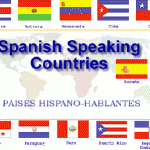
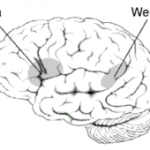




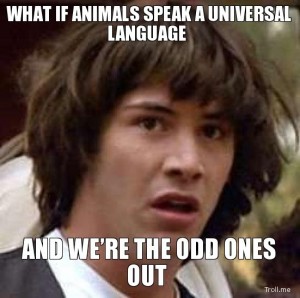
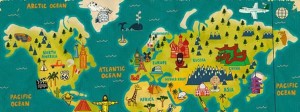
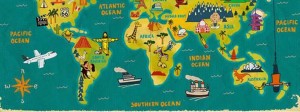






 D5 Creation
D5 Creation